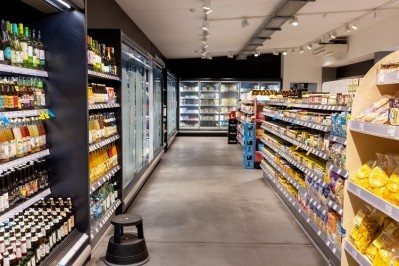Why isn’t private label chocolate appealing to consumers?

Private label products – brands owned by retailers such as supermarkets rather than large producers – are becoming increasingly popular. Once considered a downgrade from ‘national brands’, the more recognisable brands you might see in any shop, they are now viewed as approaching parity in terms of quality.
However, there are some exceptions to this trend. One of these is chocolate. Private label chocolate has not seen the same level of consumer interest as many other private label brands.
How successful have private label chocolate brands been?
Private label chocolate brands have seen a significant uptick in recent years, along with many other private label brands. “Private label chocolate in Europe has experienced growth, particularly in Germany, where private labels represented 29% of volume sales of chocolate confectionery in 2022,” Valentin Thies, associate director for food and drink research at market research company Mintel, told FoodNavigator.
However, this “was considered comparably low compared to categories such as sweet biscuits and ice cream,” and brands still dominate.
In the UK market, too private label chocolate has performed poorly compared to both national brands and other private label products. "Chocolate is a much more brand-dominant category, but there are nuances across the formats. Chocolate blocks/tablets are much more skewed towards Private Label (43% volume share vs. 21% volume share Total Chocolate in the 52 weeks to 17 March 2024), whereas segments that include gifting are much more brand-reliant (90% volume share in the 52 weeks to 17 March 2024) as shoppers look to leave an impression on their friends and family," said a spokesperson for marketing research company Kantar.
The rise of private labels
Private label brands have been growing in popularity in recent years, due to cost-of-living pressures pushing consumers towards cheaper options. However, recent research suggests that the price gap between private labels and national brands isn’t as big as it once was.
Supermarket chains such as Kaufland in Germany and Tesco in the UK have both recently released new private label chocolate ranges.
Why don’t consumers want private label chocolate?
The lack of success of private label chocolate brands is all about luxury, Ananda Roy, senior vice president at marketing research company Circana, told FoodNavigator.
“Compared to other categories, confectionary in general and chocolate bars in particular have relatively lower private label penetration.” However, this trend is also affecting national brands without a ‘luxury’ angle, as consumers are increasingly seeing chocolate as a luxury.
“Many mainstream chocolate brands face significant pricing challenges and are part of the ‘squeezed middle’ as it is the premium chocolate options that are growing - in a cost of living crisis, when all chocolate is so expensive, consumers are indulging with premium chocolates even though they're buying chocolate less often.”

Private label brands are trying to accommodate for the cost-of-living woes of consumers, releasing private labels as a “strategic response to the cost-of-living crunch driving consumers towards more affordable private-label products,” according to Mintel’s Thies. However, it is the premium national brands who are, according to Circana’s Roy, thriving.
“The premium chocolate brands from Lindt and Ferrero Roche and other Italian and UK challengers are delivering lower sugar, organic, exciting flavours, traditional recipes - all the kinds of innovations that you would ordinarily find from the big global brands (who are now having to play catch up).”
Kantar's spokesperson agreed. "Chocolate is seen as a treat category, so shoppers are willing to pay more for the brands they know, especially when gifting. It is not so much about 'rejecting' Private Label (especially as in some chocolate formats Private Label is performing well), but more about shoppers prioritizing their spending on an indulgent category."
The future of cocoa prices
The price of cocoa has increased by around 400% in a year, FoodNavigator reported recently. When will prices begin to come down?
Mintec’s Steve Wateridge suggested that if industry passed on costs to consumers, if demands decrease and production responds well, prices could fall more quickly. However, he does not believe that they will fall back to 2023 levels.
Barry Callebaut’s CEO Peter Field suggested recently that he does not believe prices will continue to rise as quickly as they have been.
With cost-of-living pressures still paramount, chocolate is being pushed further and further into the ‘luxury’ category. “As commodity prices of cocoa and coffee and other ingredients (palm oil) rise, all manufacturers are having to pay higher prices not only for ingredients but to manage inventories to ensure ongoing availability and it is very likely that you will see further price increases put through in the summer.”
"The increasing sugar and cocoa prices, as well as the continued cost of living crisis, mean that we may see a change in the reliance on private labels within the chocolate category. Currently, shoppers are using other methods within chocolate to make ends meet, such as smaller basket sizes," added Kantar's spokesperson.
The lack of success in private label chocolate does not mean that consumers are not open to consuming them. Some consumers, particularly those in Germany, are open to trying private label chocolate in the right circumstances.
“In terms of consumer attitudes on food in general, 41% of Germans would choose an own-label product over a branded one if it tasted better, and own-label launches can stand out by focusing more on flavours and textures. This suggests that while private label chocolate is popular among consumers seeking value, taste remains a crucial factor in their choices,” Mintel’s Thies told us.

















